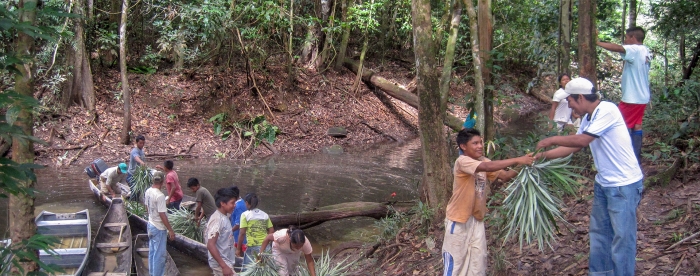News
Our stories ... ...

the Netherlands - 11 April, 2019
Over the last couple of decades, civil society organizations have been calling on governments to recognize community rights to forested lands. These rights are seen as a pathway to sustainable rural development and forest conservation. At the same time, it is also a call for autonomy and self-determination over the lands that hold social, economic, cultural and spiritual values for local people.
Since the 1980s, governments have increasingly responded to this call and devolved collective rights to local communities and Indigenous Peoples. Often, communities received partial rights to use and manage the forest, resulting in co-governance arrangements between the government and communities. Examples of this include Social Forestry in Indonesia and community forests in the Democratic Republic of Congo. In other countries, communities can obtain full ownership rights over forested lands, like in the Colombian Indigenous Reserves. In contrast, recent developments in countries like India and Brazil are threatening local people’s rights to the forest. Nonetheless, the prospects for local communities and Indigenous Peoples to claim full ownership to forests have been growing over the past years.
These tenure reforms have been an important step to acknowledge the role communities can play in conservation and management of forests. Now, with reforms on their way in many parts of the world, it is a good time to reflect on the experiences so far: What have been the outcomes of these reforms for communities? What have been conditions for success? And what remain constraints for communities to benefit from their lands and resources?
To address these questions, Tropenbos International will conduct a review of experiences with community rights. We will dive into the literature on community rights and review experiences from across the world. We will collect the stories of communities with collective rights, and bring together the perspectives of various experts.
The findings of the review will be used to reflect on our contribution to community rights in 11 countries across Latin America, Africa and South East Asia. Together with our partners, we will reflect on how CSOs can strengthen their role in shaping the conditions that make community rights work for people and forests.
In the coming months, we will share our findings through regular updates on the Tropenbos International website, in this Community Rights Series. So, come back soon to find out more!
The Review is developed in the framework of the Green Livelihoods Alliance - Milieudefensie, IUCN NL and Tropenbos International, and is funded under the Dialogue and Dissent strategic partnership with the Ministry of Foreign Affairs of the Netherlands.